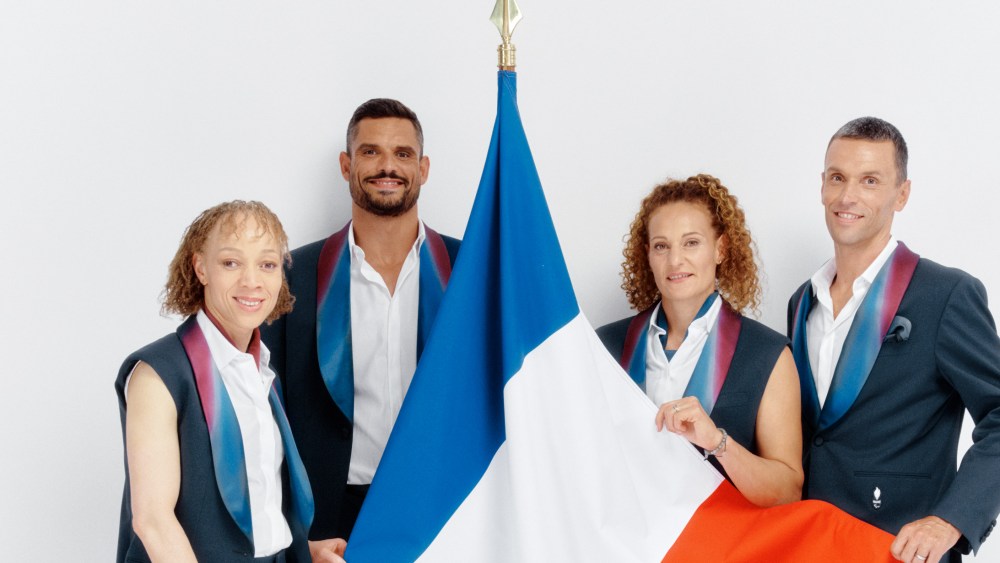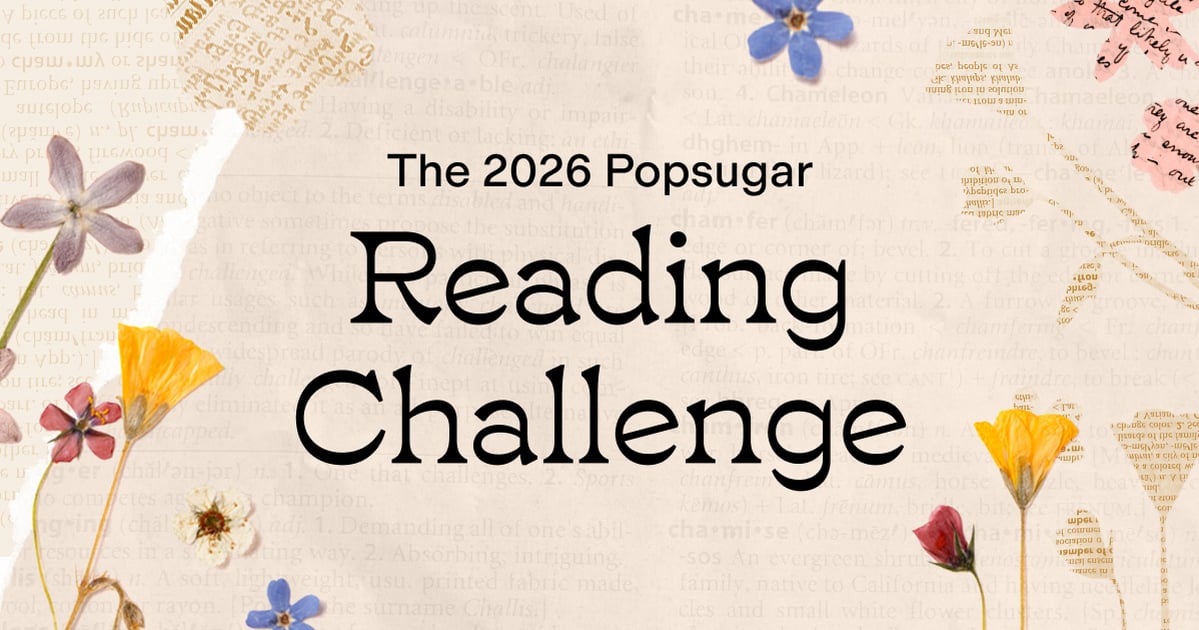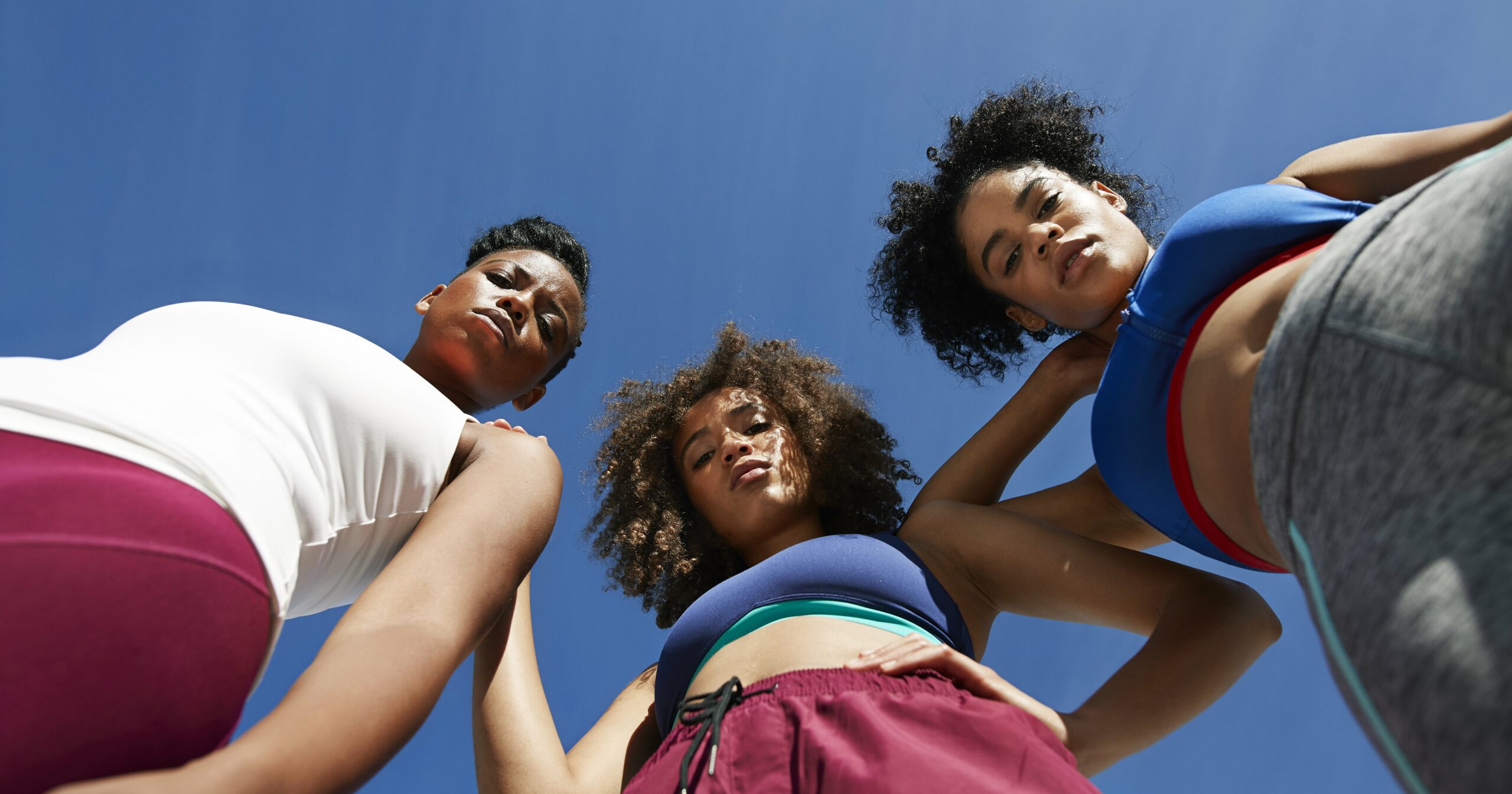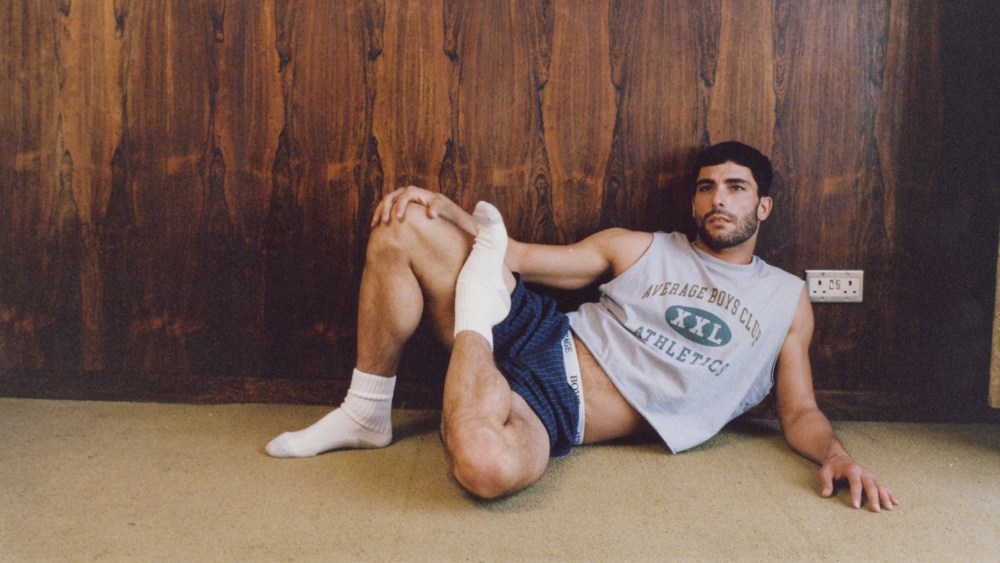PARIS — It’s already a feat to qualify for any edition of the Olympic and Paralympic Games. For France’s delegation, there is the added emotion of competing on home soil for the 2024 edition.
For a handful in the French contingent, there will be extra shine still: being named as flag bearers. And for the first time, this selection was done through a vote by the athletes taking part in this summer’s competition.
WWD met the four athletes who will lead their national delegation for the opening ceremonies of the Paris Games on Friday and on Aug. 28 respectively.
Mélina Robert-Michon

Discus throwing
First participation: 2000 Summer Olympics in Sydney
Silver medal at the 2016 Summer Olympics in Rio de Janeiro.
This edition marks her seventh participation in the Games.
You May Also Like
WWD: What is your first memory of the Games?
Mélina Robert-Michon: My first memory is Cathy Fleury, the French judoka who won the gold medal during the 1992 Summer Olympics in Barcelona, because I was practicing judo at the time. But a little later, it was Marie-José Perec in ’96 — I had started athletics and got up in the middle of the night [to watch the Games] — and that’s when my parents realized it was something serious. [Perec’s performance] inspired me to go further.
I hope young people who see [the Paris Games] will likewise be inspired to go to stadiums, to pools to achieve themselves. Beyond performance, it’s about moving, meeting people. Medals weren’t top of mind for me.
WWD: How does it feel to be selected as flag bearer?
M.R.-M.: Of course, you feel good when you’re lucky to have this role. There’s also a lot of pleasure in knowing we have been selected by our peers. I am very touched that they considered we were those who best represented [the contingent] and it makes [us] feel even more legitimate.
WWD: What is the spirit of the Games?
M.R.-M.: The Olympic spirit is also in that mix of plenty of sports, plenty of different personalities and that’s what is really strong. Universality is also something you can add. Europe or world championships are something that interests specialists more, but the Olympic Games are for the public at large. Everyone knows them, everyone has at least one memory of [them] and it’s the sporting event even for those who aren’t sporty.
Sport teaches us to live together without question. It has this ability to bring together people who would have never met under other circumstances, without distinction of where they come from. We are here, we share this moment together and it’s something that gives hope that it is possible.
It feels good. We need this now, to have this little bubble of oxygen where you see people living together, all athletes. It might sound idealistic but if it could inspire others and it could become broadly reality, it would be excellent.
WWD: Do you have a pre-competition routine?
M.R.-M.: I don’t like locking myself into something. It really evolves and is based on the needs of the moment. When you’re at the beginning of your career, you might need things that reassure you a little but after that, you live other things and you realize they [too] work.
WWD: What’s your hidden talent?
M.R.-M.: I like cooking and with my partner, we also like DIY home improvement. We love starting with something completely run down and achieving the final result we imagined when we first saw the house or the flat.
WWD: Your outfits for the Games are all set but what’s your fashion signature?
M.R.-M.: I’m really into sneakers. I have loads and switch depending on mood, moment, outfits and so on. Clothing-wise, for dressier moments, I love jumpsuits and have them in plenty of colors. They can be elegant but also be more laid-back.
Florent Manaudou

Swimming
First participation: 2012 Summer Olympics in London
Gold medal on 50-meter freestyle at the 2012 Summer Olympics in London, two silver medals at the Rio Olympics, one silver medal at the Tokyo Olympics.
He is also a handballer and took a three-year break from swimming to play professionally.
WWD: What is your first memory of the Games?
Florent Manaudou: My very first memory was Cathy Freeman lighting the flame in Sydney [in 2000] — and Mélina was already there. I have never known Olympic Games without Mélina and it was an incredible symbol of inclusion at the time.
And every four years, it’s incredible stories — French or otherwise — like the [U.S.] basketball Dream Team. And it’s incredible moments like crossing paths with Serena Williams or Usain Bolt in the athlete village. My favorite one is going to the dining hall because that’s where you really see everyone, from a 14-year-old gymnast to a 65-year-old equestrian, everyone lives together and I find that awesome.
WWD: How does it feel to be selected as flag bearer?
F.M.: Being elected [to the role] by our peers added a legitimacy that wouldn’t have been as strong if France’s Olympic committee had designated us. But whatever the result, I would have been happy because I wanted to live those Games at home. I had never experienced major swimming competitions, it’s going to be a first.
WWD: What is the spirit of the Games?
F.M.: For me, the Olympic Games are about living together and that makes us better human beings because we realize that, yes, we can live together. Living an experience like the Olympic one makes us much more tolerant.
Regardless of religion, nationality, skin color, we are all on the same footing in the [Olympic] village. We see more and more conflicts that divide people and it’s fantastic seeing people brought together thanks to sport. During the Olympic torch relay, we really felt this diversity, socially and in many other aspects. I love bringing people together and seeing it in France is going to be even better.
[The Olympic spirit also] represents so many things: selflessness, work but also pleasure, diversity. There are so many words that you could pack into it. Olympic sports have become more and more professional so beyond the “what counts is taking part” saying that was expressed with the Games were relaunched by Pierre de Coubertin, we have this desire to bring medals to our country.

WWD: Do you have a pre-competition routine?
F.M.: It changes every time depending on my wants and needs. I feel that I had different needs for my first Games and will have different ones for my last ones. But I don’t like saying “my last” because when I see Mélina doing seven [editions], maybe I’ll continue.
I’m not very superstitious and don’t really like doing the same thing over and over. If you ended up not doing that ahead of a race, it can throw you off.
WWD: What’s your hidden talent?
F.M.: It’s not exactly a hidden talent but I really love to learn. I am a short-term enthusiast, which means I’ll challenge myself to do something, achieve it, then switch to something else. In the past few years, I’ve learned to play guitar, playing six hours a day. During lockdown, it was astronomy. I bought a telescope and spent hours looking up YouTube videos to understand. I am really curious about how things work.
WWD: Your outfits for the Games are all set but what’s your fashion signature?
F.M.: Caps are the accessory I have the most of. Recently, I also started wearing bucket hats too. I have the impression [they] help me focus on myself and that I’m a little bit protected. When I’m wearing a cap, I feel less vulnerable, although I rarely am vulnerable, especially being a rather tall man.
Nantenin Keïta

Para-athletics, T13 sprint events
First participation: 2008 Beijing Summer Paralympic Games
Gold medal at the 2016 Summer Olympics, silver and bronze medals at the Beijing Olympics, bronze medal at the London Olympics.
She was the first to carry the Olympic flame when it landed in France on May 8.
WWD: What is your first memory of the Games?
Nantenin Keïta: On the Olympic side, it would be the two 400-meter finals in Sydney, [respectively] with Cathy Freeman and Michael Johnson. I must have been doing track and field for two years by then. Freeman was just majestic and Johnson…I’d always heard that he ran badly and won everything. When I started, I was told I ran really badly and told myself that if that was the case and I won everything like Johnson, I was fine with it. For the Paralympic Games, it would be my first opening ceremony.
WWD: What does being selected as flag bearer mean to you?
N.K.: What drives us is really moving the needle for people with disabilities and sports for everyone. Whoever you are, wherever you’re from, there’s a sport for you where you can blossom.
It’s about changing mentalities about parasports. We achieve performance, we train hard and, sure, we have the specificity of having a handicap, be it visible or not, but we are here for performance, to make others dream like any other athlete — with even more resilience.
Having the Games at home has been an accelerator for clubs to open their doors to parasports.
WWD: What is the spirit of the Games?
N.K.: It’s about mixing because what is the whole world? It’s Olympic athletes, it’s people with disabilities, it’s people who are Black, white, short, tall, etc. Having a unified Team France, that’s the real world, that’s real life. As athletes, we are used to training with Olympic athletes and they’re used to training with Paralympians. Some have even practiced their disciplines on the Paralympic side because they were injured. Both worlds need each other — and we’re only one world.
WWD: Do you have a pre-competition routine?
N.K.: How much time do you have? (Laughs.) I have plenty of rituals and superstitions. It starts from the moment I get my bib number. It really reassures me because I’m someone who gets really stressed. But that’s just on competition days. The rest of my life is absolutely chaotic. (Laughs.)
WWD: Your outfits for the Games are all set but what’s your fashion signature?
N.K.: I have a visual handicap and a physical difference. When I was younger, people would often refer to this — I am albino — and the fact that albinism is not beautiful. Fashion became a way to express myself and tell people not to stop there. I am many things, I have many facets and fashion allows you to express each one depending on your outfit.
I love clothes and leather goods, which I collect. Today, I think I have more purses than international medals, but more national ones than handbags. (Laughs.) My latest purchase is a small Loewe basket with the logo on the front with white leather details. And I collect headgear of all kinds. Hats, caps, you name it.
Alexis Hanquinquant

Para-triathlon, PTS4
First participation: 2020 Tokyo Paralympic Games
Gold medal at the 2020 Summer Paralympics
He presented the Olympic flame on the Cannes Film Festival red carpet in May.
WWD: What is your first memory of the Games?
Alexis Hanquinquant: For me, it’ll be Marie-José Perec too. The final in Atlanta in 1996 was really when I discovered the Olympic world, in all its power and with her completely insane stride. It really put stars in my eyes. My first Paralympic memory was London in 2012, which really breathed new life into parasports by giving it visibility. It didn’t have much media presence before that, few TV broadcasts and that’s when you started to have a spectacular side to the Paralympic movement.
WWD: What does being selected as flag bearer mean to you?
A.H.: There’s a big sense of pride. It’s a huge satisfaction to be elected by our fellow athletes. It’s recognition of our personality, of our respective sporting careers and a big responsibility to bring this whole team behind us. There’s also a duty to change the gaze on handicap and more broadly on difference as well as reconnecting French people with sports because sport is really very important to feel well in your mind, in your body. It’s an essential tool for me.
I hope Nanto [the nickname of Keïta] and I will challenge the preconceived idea that the Paralympic Games are about “handicapped sport.”
No, it’s sport with the same strength, the same intensity, the same emotion, the same desire to succeed as the Olympic Games, with added resilience. We have the opportunity to accelerate this change exponentially thanks to the Paris Games.
Sure, let’s talk about the medical conditions because it’s important to understand the differences of each athlete. But in the end, let’s talk performance, speed, strength. That’s what interests us [as athletes] and the public of sports.
I don’t particularly like hearing that we have more merit than athletes competing in the Olympic Games. But we have just as much and I’m bothered by the fact that media coverage remains smaller.
I invite those who think that Paralympic sports are “less than” Olympic sports to watch, in person or on TV. They will be enthralled because they’ll realize there’s not an ounce of pity in the eye of a Paralympian, only performance and a desire to win.
WWD: What’s your hidden talent?
A.H.: I’m still looking for my basic skills. (Laughs.) I come from construction so I’m good with my hands. I recently built planters for my wife. For something I made between training sessions, the result isn’t too bad. She’s happy with them, that’s the most important part.
WWD: Your outfits for the Games are all set but what’s your fashion signature?
A.H.: Fashion wasn’t a field I gravitated toward, but I have learned to navigate it. Being dressed in Berluti doesn’t hurt. (Laughs.) A while back, I even walked during Paris Fashion Week, for Marine Serre’s [spring 2023] show and I loved it. That’s an experience I’d like to repeat in the future.



